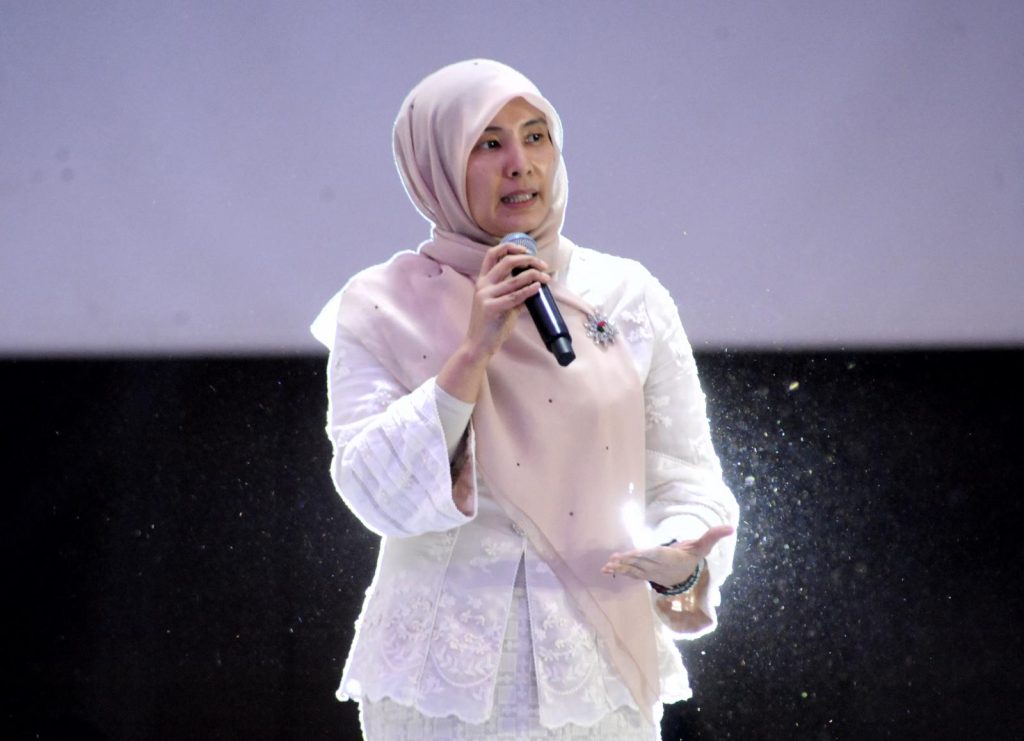
 IT did not come as a surprise that Nurul Izzah Anwar (picture) succeeded in her quest to become Parti Keadilan Rakyat (PKR) deputy president, ousting incumbent Rafizi Ramli.
IT did not come as a surprise that Nurul Izzah Anwar (picture) succeeded in her quest to become Parti Keadilan Rakyat (PKR) deputy president, ousting incumbent Rafizi Ramli.
Cynics and sceptics had a field day, declaring that PKR is now a family-planned party and quipping that Madani, the government’s philosophy of rule, is actually a Malay acronym that represents the triumvirate rule of mother, father and daughter.
In essence, critics do not accept Nurul Izzah’s political prowess as the determinant in the race for the deputy presidency, but rather to the fact that she is the daughter of Datuk Seri Anwar Ibrahim, the party president, and Datuk Seri Dr Wan Azizah Wan Ismail, the former president and current advisor.
To them, Nurul Izzah’s ascension is nepotism.
Their criticisms became more acerbic, as they were of the opinion that Nurul Izzah and her family were deeply hypocritical having been extremely opposed to nepotism when they were in the Opposition.
Advocates and apologists of Nurul Izzah and Anwar, however, tried to deflect the nepotism label by arguing that when the Anwar family denounced nepotism while in the Opposition, the criticism was directed at the economic gains enjoyed by the children and wives of sitting prime ministers, not political appointments.
These supporters of Anwar and Nurul Izzah took their case all the way back to 1998, when Suharto was toppled by the Indonesian Reformasi (reformation) movement, whose battle cry was KKN – Korupsi, Kolusi dan Nepotisma (Corruption, Collusion and Nepotism).
Anwar’s and Nurul Izzah’s reformasi movement adopted the Indonesian uprising wholesale, including the KKN slogan, and directed theirs criticism at Tun Dr Mahathir Mohamad, then PM, accusing him of favouring his children and cronies in financial and business dealings.
Dr Mahathir disputed the allegations and instead revealed public documents which showed Anwar’s family and close associates held substantial shares and secured other financial gains while he was the Finance Minister.
Despite that, Anwar’s supporters chose to ignore the revelations and continued to level accusations against Dr Mahathir.
After Dr Mahathir stepped down in 2003, accusation of nepotism and cronyism re-emerged during the second term of the late Tun Abdullah Ahmad Badawi, in particular, targeting his son-in-law Khairy Jamaluddin, who became the UMNO Youth chief and was accused of having the ambition to become PM before turning 40.
Apart from that, Anwar and the reformasi movement directed the nepotism and cronyism label at the infamous four “K”, the initials of Abdullah’s son and alleged cronies, as well as the fourth-floor boys, referring to the young officers occupying the fourth floor of the PM’s office.
It didn’t stop when Datuk Seri Mohd Najib Razak took over the PM’s office, but this time, his wife, Datin Seri Rosmah Mansor, became a popular target, apart from Najib himself, for their alleged complicity in the scandalous 1Malaysia Development Bhd (1MDB) case.
The point is that accusations of nepotism and cronyism against his political enemies have consistently been Anwar’s “weapon” of choice.
In the late 1990s, nepotism was primarily defined as economic gains for the children of the PM, by the first decade of the new millennium, it had evolved into a combination of political and economic nepotism.
Lest advocates of Nurul Izzah forget that, Anwar’s reformasi movement was loudly denouncing nepotism when Khairy became the UMNO Youth chief despite Khairy being only the son-in-law.
Hence, the justification that Anwar and the reformasi movement’s battle against nepotism focused solely on economic gains within the family does not hold water.
In fact, they should be more concerned about the political position as it is actually the power to commit “economic nepotism” apart from creating a political dynasty.
And if advocates and apologists of Nurul Izzah are unaware, in the history of contemporary Malaysia, there has never been a sitting PM whose children immediately succeeded him.
There was Abdullah’s case, and even then, Khairy was son-in-law and only made it to the UMNO Youth chief post.
Dr Mahathir, much maligned by Anwar and his supporters, did not allow his children to get anywhere near the political throne. Mukhriz was a deputy minister and later became a mentri besar (MB) when Dr Mahathir retired. When he returned as the PM the second time around, Mukhriz was stuck as an MB.
There were talks that Mukhriz had then wanted to request for a federal post, obviously allowing them to get closer to the throne, but Dr Mahathir never entertained the idea.
After stepping down the second time, and when Anwar started to regurgitate his accusations that Dr Mahathir had favoured his children during his first tenure as PM, the latter decided not to let such accusations go unchallenged and sued Anwar for libel.
The case has been pending for a few years, and to date, there has yet to be any proof shown to the public or the courts regarding Dr Mahathir’s alleged crimes.
Regardless, the whole episode demonstrates how much nepotism in whatever form, perceived or real, is abhorred by both Anwar and Dr Mahathir.
Ironically, Dr Mahathir had upped the ante to debunk accusations of him indulging in nepotism, hence the suit against Anwar, while Anwar seems nonchalant about the accusations of him doing so with regards to Nurul Izzah becoming his heir apparent.
Anwar and Nurul Izzah’s supporters are bending over backwards to justify nepotism by inventing caveats and definitions of what they consider to constitute nepotism.
Not to be ignored are the casualties from Anwar and Nurul Izzah’s nepotistic venture, whether directly or otherwise, which led Rafizi and another minister, Nik Nazmi Nik Ahmad, to resign their Cabinet posts.
On one hand, their resignations are only proper given that they were in the Cabinet by virtue of representing their party. Now that they have lost their party posts, they cannot continue to enjoy the perks of being party members.
However, the journey prior to this, Rafizi, in particular, had publicly denounced the party election process and condemned the way those on Nurul Izzah’s side had ganged up to oust him.
Obviously, the lead to these efforts was Anwar, though mostly implied and not stated. By that, Rafizi’s resignation from the Cabinet does not equal principle. He would only be principled if he quit the party.
Amid all this, nepotism is being normalised, another issue that has risen, which seems to distance Anwar further from his promised reforms – his request for legal immunity over a civil suit from his former aide.
The immunity he sought has snowballed into a major controversy, diminishing his leadership credentials and unmasking him further. And yet, both he and his supporters seem as indifferent to this issue as they are to nepotism.
Maybe, nepotism to them, is simply family bonding.
- Shamsul Akmar is an editor at The Malaysian Reserve.
The post Friday Jottings: Giving immunity to nepotism appeared first on The Malaysian Reserve.
